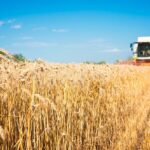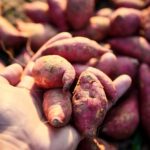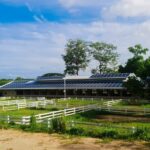Farming in Limpopo can be a rewarding experience, but the province’s hot and dry climate also presents unique challenges. With fluctuating rainfall patterns and high temperatures, small farmers must adapt and innovate to ensure their farms not only survive but thrive. Whether you’re growing crops, raising livestock, or doing both, this guide offers practical strategies to help you succeed in Limpopo’s arid environment.
Before you can make informed decisions about your farm, it’s crucial to understand your local microclimate and soil type. Limpopo has semi-arid conditions in many areas, with annual rainfall averaging between 400mm and 600mm, often concentrated in short bursts. Conduct a soil test through your local agricultural extension office or a private lab. Knowing your soil’s nutrient levels, pH, and water retention capacity will help you select the right crops and necessary soil amendments.
One of the most effective ways to cope with dry conditions is to plant drought-tolerant crops. Consider grains like sorghum and millet, which require less water and perform well in hot climates. Protein-rich legumes such as cowpeas and bambara groundnuts improve soil fertility through nitrogen fixation. Moringa is a highly nutritious tree crop that thrives in arid environments, and aloe vera, ideal for medicinal and cosmetic markets, is incredibly water-efficient. Opting for indigenous and traditional crops where possible is advantageous, as they are naturally adapted to Limpopo’s conditions.
Efficient water use is key to thriving in a dry climate. Drip irrigation is one of the best methods for small-scale farmers as it delivers water directly to plant roots, minimizing evaporation. If drip irrigation is too costly initially, low-cost alternatives like bottle drip systems or gravity-fed hose systems can be used. Mulching with straw, leaves, or plastic also helps reduce soil moisture loss.
Conservation agriculture, which involves minimal soil disturbance, permanent soil cover, and crop rotation, is another effective practice. This approach improves soil structure, increases water retention, and reduces erosion. Techniques such as no-till planting help preserve moisture, while cover cropping with plants like clover during off-seasons protects the soil and adds nutrients. Contour farming, where plowing follows the land’s natural contours, aids in retaining water.
Relying on a single crop can be risky in a variable climate, so diversification is essential. Integrating livestock such as goats, chickens, or indigenous cattle, which can tolerate heat and forage on dry vegetation, is a smart strategy. Adding high-value niche products like herbs, essential oils, or beekeeping for honey production can provide additional income streams.
Investing in rainwater harvesting systems, such as tanks connected to rooftop gutters, is highly beneficial. Creating swales (shallow trenches) and ponds to capture runoff can further enhance water availability. Using harvested rainwater for irrigation reduces reliance on municipal or borehole water, saving costs and conserving groundwater.
Building strong community connections is also vital. Joining local farmers’ associations, cooperatives, or WhatsApp groups allows farmers to exchange tips, buy inputs in bulk, and access training opportunities. Partnering with nearby farmers can facilitate shared investments in larger equipment or infrastructure.
Finally, staying informed and continuously learning is crucial. Keeping up to date with new techniques, government programs, and market trends through workshops, field days, online courses, and mentorship from experienced farmers helps ensure long-term success. Being adaptable and open to new ideas is one of the most important traits for small farmers working in challenging climates.
Thriving as a small farmer in Limpopo’s dry climate is entirely possible with the right knowledge and practices. By selecting suitable crops, conserving water, improving soil health, and building community connections, farmers can turn their operations into resilient and profitable enterprises. Starting small, experimenting with what works best on the land, and embracing continuous learning will help ensure a sustainable future.
Join 'Farmers Mag' WhatsApp Channel
Get the latest Farming news and tips delivered straight to your WhatsApp
CLICK HERE TO JOIN






